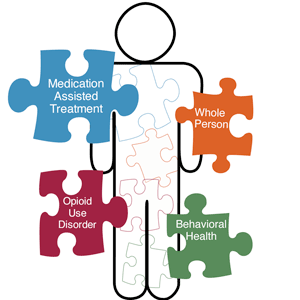In recent years, medication-assisted treatment (MAT) has gained recognition as an effective approach to treating addiction. This method combines behavioral therapy with medications to help individuals overcome substance abuse disorders. MAT has been particularly successful in treating opioid addiction and has shown promising results in reducing cravings and preventing relapse.
The Benefits of Medication-Assisted Treatment
1. Reduced Cravings
One of the key benefits of MAT is its ability to reduce cravings for drugs or alcohol. Medications such as methadone, buprenorphine, and naltrexone can help individuals manage their cravings and stay on track with their recovery journey.
2. Preventing Relapse
Relapse is a common challenge for individuals in recovery. MAT can help prevent relapse by providing a steady dose of medication that reduces the likelihood of withdrawal symptoms and cravings.
3. Improved Treatment Outcomes
Studies have shown that individuals who receive MAT are more likely to stay in treatment and have better overall outcomes compared to those who only receive behavioral therapy. MAT can increase the chances of long-term recovery and reduce the risk of overdose.
Considerations for Medication-Assisted Treatment
1. Individualized Treatment Plans
It’s important for individuals seeking MAT to work with healthcare professionals to develop a personalized treatment plan that addresses their specific needs and goals. Treatment plans should be regularly reviewed and adjusted as needed to ensure effectiveness.
2. Potential Side Effects
Like any medication, MAT can come with potential side effects. It’s essential for individuals to be aware of the risks and benefits of the medications they are taking and to communicate any concerns with their healthcare provider.
3. Continued Support and Therapy
While medications play a crucial role in MAT, they are most effective when combined with behavioral therapy and support services. Individuals in MAT should continue to engage in counseling, support groups, and other therapies to address the underlying causes of their addiction and learn coping skills for long-term recovery.
Conclusion
Medication-assisted treatment offers a valuable and effective approach to treating addiction. By combining medications with behavioral therapy and support services, individuals can benefit from reduced cravings, prevented relapse, and improved treatment outcomes. However, it’s important for individuals to work closely with healthcare professionals to develop personalized treatment plans, be aware of potential side effects, and engage in continued therapy and support. MAT has the potential to transform lives and help individuals achieve long-term recovery from addiction.
Are you or someone you know struggling with addiction? Contact us today to learn more about medication-assisted treatment and how it can help you on your journey to recovery.
